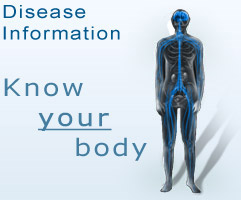Ulcerative Colitis (UC)
What is ulcerative colitis?
Ulcerative colitis is a chronic condition where the immune system (defends the body against infections, disease and foreign substances) incorrectly targets the lining of the colon (large intestine that stores and excretes waste matters from your body) causing inflammation (disease and swelling), ulcers, bleeding and diarrhoea. The inflammation mostly affects the rectum and lower part of the colon, but it can also affect the entire colon.
Even though ulcerative colitis has no cure, it can usually be well controlled and patients can live active and productive lives.
Causes of ulcerative colitis
The development of ulcerative colitis appears to be caused mostly by two factors:
- genetic susceptibility. Ulcerative colitis tends to run in families, suggesting that genetics play a role in this condition; and
- environmental triggers. Environmental factors such as infections are suspected of triggering ulcerative colitis in people who have a genetic susceptibility. For unknown reasons, ulcerative colitis is more common in people who live in northern climates and in developed countries.
Symptoms of ulcerative colitis
The symptoms of ulcerative colitis can be mild, moderate or severe and may fluctuate over time. Usually during ‘flare' periods the condition becomes more active and during ‘remission' periods the condition is calm or inactive.
Mild symptoms
Symptoms of mild ulcerative colitis include stopping and starting of rectal bleeding, mucus discharge and mild diarrhoea (fewer than four stools per day). Symptoms may also include mild cramps or abdominal pain, painful straining with bowel movements and bouts of constipation.
Moderate symptoms
Symptoms of moderate ulcerative colitis include frequent, loose bloody stools (up to 10 per day), mild anaemia (few red blood cells in the blood stream), mild to moderate abdominal pain and a low-grade fever.
Severe symptoms
Symptoms usually include a large region of the colon involved, often the entire colon. Symptoms of severe ulcerative colitis include frequent loose stools (more than 10 per day), severe abdominal cramps, fever, dehydration and significant bleeding, frequently leading to anaemia. Severe ulcerative colitis can lead to rapid weight loss.
Treatment of ulcerative colitis
Control of the condition includes long-term medical treatment and regular monitoring for complications. Treatment of ulcerative colitis is customised to the region of the colon that is involved, the severity of inflammation and symptoms and other individual factors. For most patients ulcerative colitis is characterised by a frustrating pattern of flares and remissions. As a result, the two main goals of treatment are to achieve and maintain remission, which usually requires long-term medication.
- Proctitis (inflammation and swelling of the rectum) or proctosigmoiditis (inflammation and swelling of colon and rectum) are usually treated with one or more types of medication that are given as an enema or a suppository or foam.
- In extensive ulcerative colitis and pancolitis most patients require an oral medication if their inflammation extends above the sigmoid colon. Some patients may also benefit from combined treatment with oral and topical preparations.
- Refractory ulcerative colitis occurs when a person's condition responds poorly or not at all to the medical treatments. Patients who depend on steroids to control their symptoms are usually referred to as having refractory disease.
- Colectomy (surgical removal of the colon) may be required if medical treatments are unsuccessful or if complications develop. Patients who cannot tolerate the constant battle with their condition sometimes prefer to have their colon removed.
- A well-balanced, nutritious diet can help maintain health and a normal body weight. However, many people can identify foods that worsen symptoms and it is reasonable to avoid these foods. People who restrict their diet for any reason should take a daily multivitamin.
o Lactose intolerance occurs when a person is not able to digest the sugar (lactose) contained in milk products. Symptoms of lactose intolerance may include diarrhoea, cramps or gas. Lactose intolerance is very common in people with ulcerative colitis so it is advisable not to eat any milk products.
o People with ulcerative colitis who have abdominal cramps and diarrhoea may notice relief when they reduce their intake of fresh fruit and vegetables, caffeine, carbonated drinks and products containing sorbitol.
- Enteral feeding (feeding through a tube from the nose into the stomach) and parenteral feeding (intravenous feeding) are seldom used for the long-term treatment of ulcerative colitis. These feeding options may be used temporarily to improve nutritional status in people who are severely ill and unable to eat for a week or longer.
- Stress can worsen ulcerative colitis. Counselling or psychotherapy can be helpful in dealing with the frustration, depression or anxiety that some people with ulcerative colitis experience.
- Relaxation techniques can help to relieve feelings of anxiety or fear and may include meditation, progressive muscle relaxation, self-hypnosis or biofeedback.
Possible complications of ulcerative colitis
Long-standing and/or severe ulcerative colitis can be associated with serious and sometimes life-threatening complications.
- A stricture is a narrowing of the colon or rectum. This occurs in a small percentage of people with ulcerative colitis. Strictures can cause a blockage of the colon.
- Some degree of bleeding occurs in most patients with ulcerative colitis. In some patients, the colitis is severe enough that it affects a small artery in the colon, leading to heavy bleeding, and the patient may require a blood transfusion or surgery.
- Toxic megacolon is one of the most serious complications of patients with severe colitis. It occurs when inflammation in the colon causes it to dilate (become big), causing the walls to become thin and weak. This can eventually lead to a tear in the colon wall and surgery is usually advised if it doesn't respond to medical treatment within about 72 hours.
- People with ulcerative colitis have an increased risk of colorectal cancer, although the degree of risk varies from one person to another. The risk of colorectal cancer is related to the duration and extent of ulcerative colitis.
o A colonoscopy (inspection of the interior surface of the colon with a flexible endoscope that is inserted through the rectum and equipped to obtain tissue samples) is recommended eight to 10 years after symptoms appear in people with pancolitis and starting 15 years after symptoms appear in people with left-sided colitis.
o Thereafter, a colonoscopy should be repeated every one to three years.
o If advanced precancerous changes or cancer are discovered, surgical removal of the colon (colectomy) is usually recommended.
References
http://www.uptodate.com/home/index.html
 TransmedBanner4.jpg)

